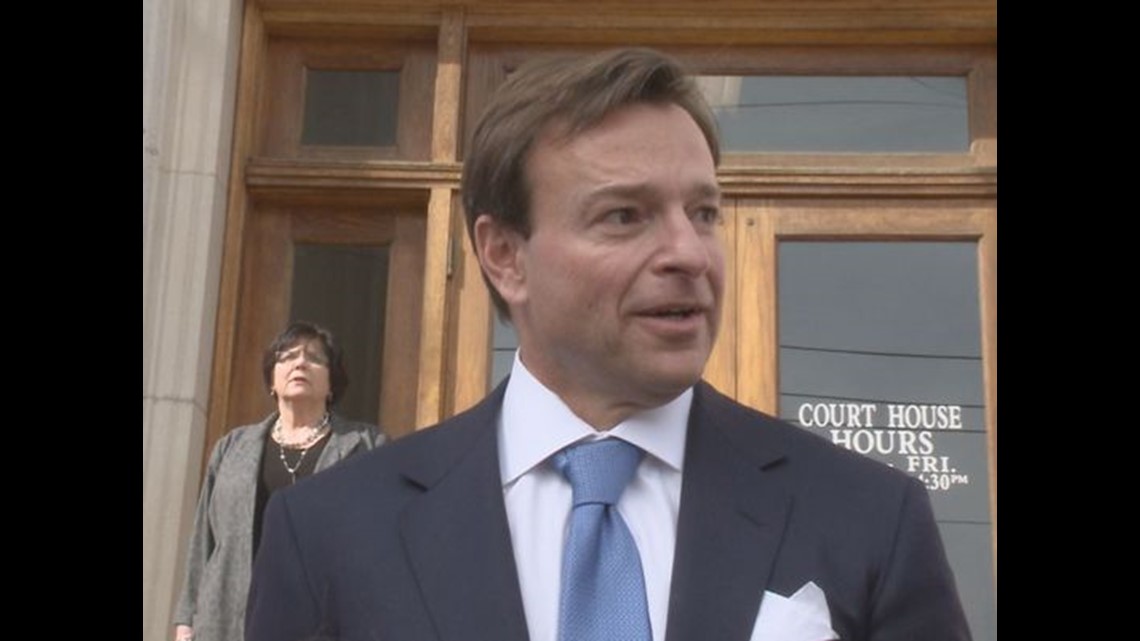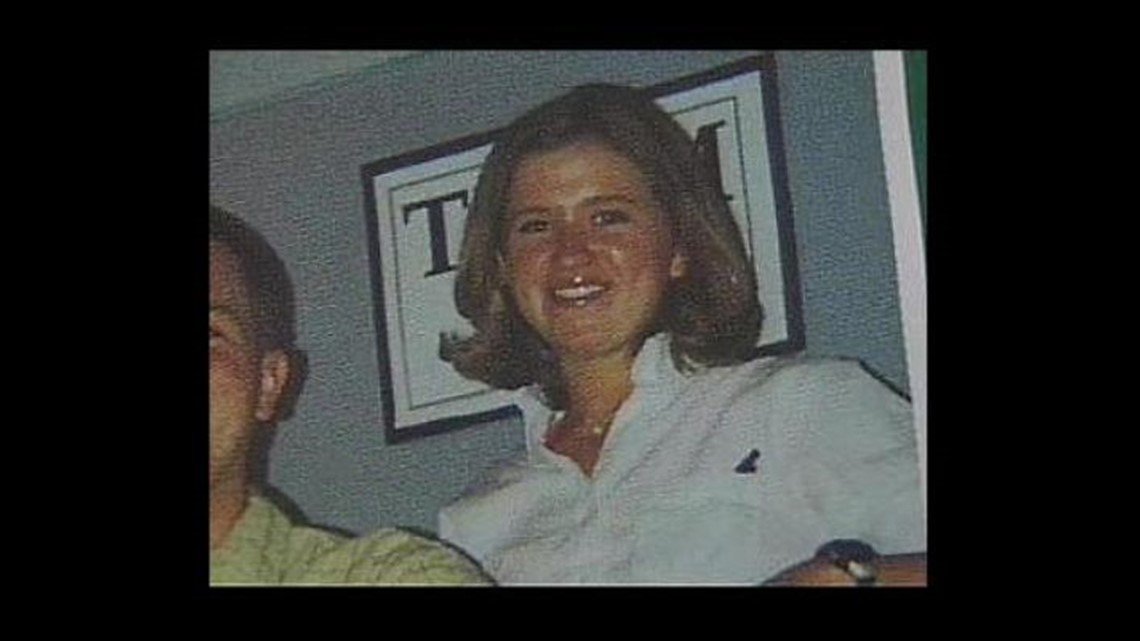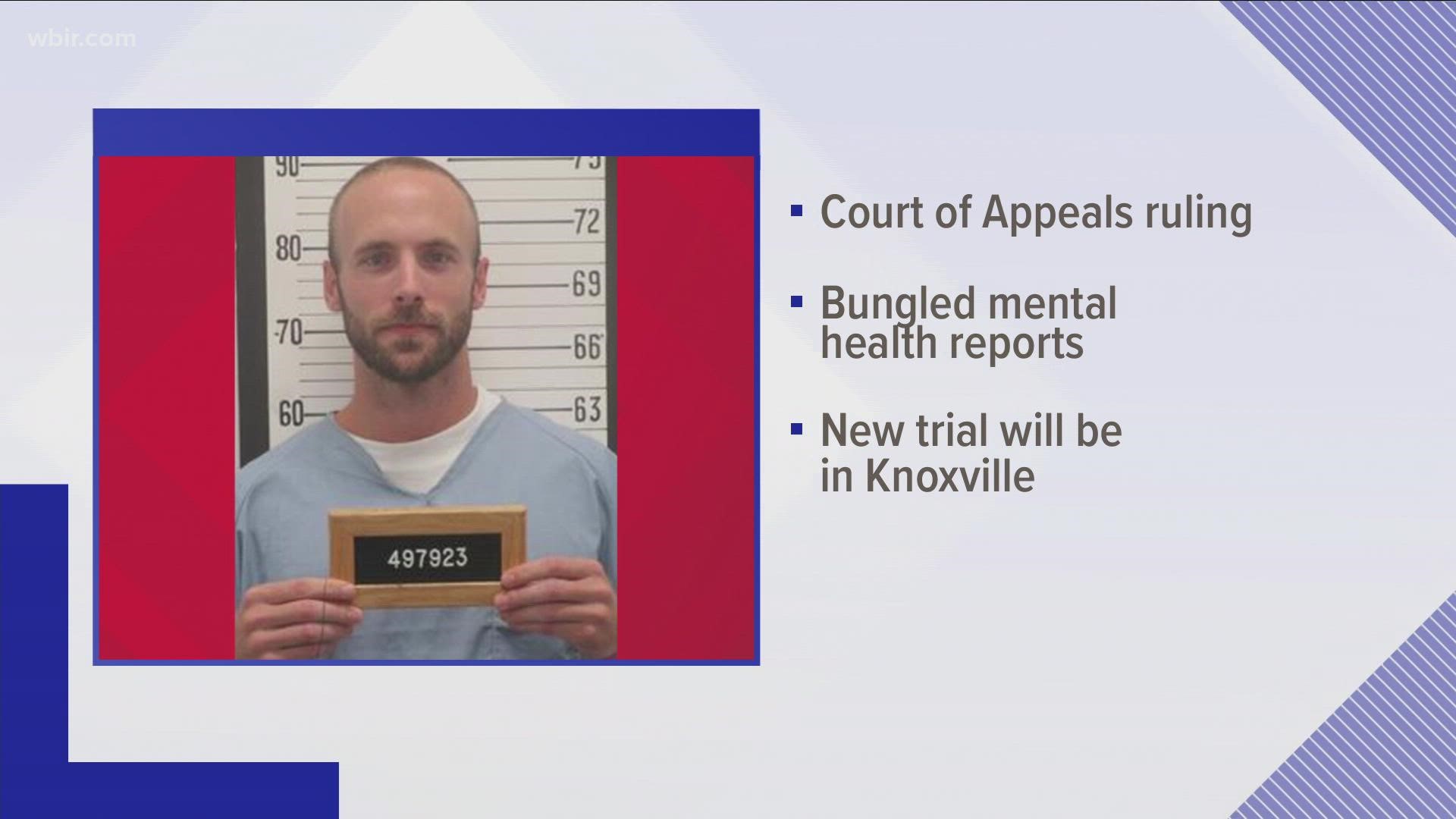KNOXVILLE, Tenn. — A Knoxville man convicted of brutally killing an acquaintance in March 2008 as she came home from work will get a new trial because his attorney bungled mental health reports prepared by a defense expert, the state Court of Criminal Appeals has ruled.
The court issued its opinion Friday. Micah Ross Johnson, who turns 35 in March, will be retried in Knox County Criminal Court, and he'll be represented by prominent attorney Gregory P. Isaacs.
Johnson was convicted in 2011 of killing 24-year-old Carrie A. Daugherty as she arrived back at her North Knoxville home in the Oakwood area from a shift at Barley's in the Old City.
Johnson surprised her in the dark, bashing her head with a brick and then stabbing and mutilating her with a shovel, evidence at trial showed. Daugherty, who roomed with Johnson's girlfriend, fought back but died, evidence showed.
At sentencing, Johnson asked the victim's family for forgiveness, something at least some survivors told him they would not grant.
The defense led by then Public Defender Mark Stephens argued at trial that Johnson, then in his early 20s, suffered obvious mental health problems including delusions and paranoia.
He retained a mental health expert to evaluate Johnson and to assist in putting on his insanity defense.


The doctor provided what Stephens considered a "draft" report in May 2009 ahead of trial and then a subsequent formal report the next month, records show.
In the draft report, the expert offered information from an interview with Johnson in which Johnson said he knew who the victim was and knew what he was doing, records show. That's not what the defense expected because they believed him to be seriously mentally ill.
Stephens viewed the May 2009 document as nothing but a draft and not what he'd rely on for his defense, records show.
The subsequent June 2009 report from the doctor was much different.
"The petitioner’s version of events recorded in the June 2009 report, on the other hand, indicated that at the time of the offenses, he believed that he was in danger and that he killed the victim believing she was someone else there to attack him," the court's opinion states.
Stephens said later that Johnson told him when he first talked with his own expert that he feared an insanity defense wouldn't work so well and that he didn't want to be viewed as crazy and a "monster," court records state.
The conflicting reports, and the way the defense handled them, ended up creating significant problems at trial for the defense and harming Johnson's case before the jury, the court found. They amounted to ineffective assistance of counsel for the veteran Stephens, the appeals court found.


The prosecution attacked the mental health argument. Jurors didn't buy the Johnson team's argument that he suffered a mental illness or defect when they convicted him of murder in 2011.
Stephens, who founded and ran the Public Defender's Office for about three decades, later would acknowledge during testimony as Johnson sought a new trial that he should have handled the reports better in defending his client.
"The record establishes that lead counsel knew of and was in possession of (the expert's) May 2009 report and the petitioner’s damaging narrative of events two years before trial. That lead counsel believed the May 2009 report to be only a draft does not excuse his neglect in forgetting about the petitioner’s changed narrative or in failing to notice the omission of any reference to that narrative in the June 2009 report. The information contained in the May 2009 report was damaging to the petitioner’s defense, and trial counsel did nothing in advance of trial to mitigate that damage," the appeals court said,
After trial, Isaacs took over representing Johnson along with his associate Franklin Ammons. They pursued tossing the conviction on Johnson's behalf before the appeals court.
Johnson has been serving a murder sentence at South Central Correctional Facility in Clifton, Tenn. He wasn't supposed to be eligible for release until 2064, according to the Department of Correction.
Isaacs said Friday it's his intent to continue representing Johnson when the case comes back to Knox County for trial.

